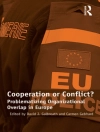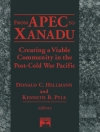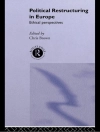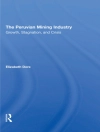This book traces the re-emergence of nationalism in the media, popular culture and politics, and the normalization of far-right nativist ideologies and attitudes in Austria between 1995 and 2015, within the framework of Critical Discourse Studies. In doing so, it brings together a range of theoretical and empirical approaches to identity politics, contemporary popular culture, far-right populism and commemoration.
While contradictory yet intertwined tendencies towards renationalization and transnationalization have often framed debates about European identities, the so-called refugee crisis of 2015 intensified and polarized these debates. The COVID-19 pandemic, as another major crisis, saw nation-states react by closing borders, while symbols of banal nationalism proliferated.
The data under discussion here, drawn from a variety of empirical studies, suggest that changes in memory politics—the way past events are collectively remembered and tied into current political discourses—are also linked to the dynamics of migration; the influence of financial and climate crises; changing gender politics; and a new transnational European politics of the past. Accordingly, the authors assess current challenges to liberal democracies, as well as fundamental human and constitutional rights, in relation to new trends of renationalization across Europe and beyond.
Jadual kandungan
Introduction: Nationalisms old and new Ruth Wodak and Markus Rheindorf
DOI: 10.47788/RHDJ8561
1. Discourses about Nationalism Ruth Wodak
DOI: 10.47788/HLEG4607
2. The Discourse-Historical Approach: Methodological innovation and Triangulation Markus Rheindorf
DOI: 10.47788/XXFA7162
3. Negotiations of a Shared Past and National Identity 1995-2015 Markus Rheindorf and Ruth Wodak
DOI: 10.47788/XELZ4501
4. Whose story? – Narratives of persecution, flight and survival told by the children of Austrian Holocaust survivors Ruth Wodak and Markus Rheindorf
DOI: 10.47788/DTVP8573
5. Disciplining the Unwilling: Normalization of (Demands for) Punitive Measures against Immigrants in Austrian Populist Discourse Markus Rheindorf
DOI: 10.47788/LHPY1173
6. Nativist gender and body politics Ruth Wodak and Markus Rheindorf
DOI: 10.47788/FAVS5678
7. Entering the Post-Shame Era. The Rise of Illiberal Democracy, Populism and Neo-Authoritarianism in Europe. The case of the turquoise-blue government in Austria 2017/2018 Ruth Wodak
DOI: 10.47788/JDDM6921
8. Borders, Fences and Limits: Protecting Austria from Refugees. Metadiscursive negotiation of meaning in the current refugee crisis Markus Rheindorf and Ruth Wodak
DOI: 10.47788/GLVB8739
9. Re/inventing nationalism: Crisis Communication and Crisis Management during COVID-19 in Austria Ruth Wodak
DOI: 10.47788/NYWQ6835
Mengenai Pengarang
Markus Rheindorf teaches applied linguistics at the University of Vienna and Central European University, and specializes in critical discourse studies and academic writing. He has received fellowships from the International Centre for Cultural Studies and the Institute for Human Sciences, Vienna. His recent publications include Revisiting the Toolbox of Discourse Studies: New Trajectories in Methodology, Open Data and Visualization (2019).












